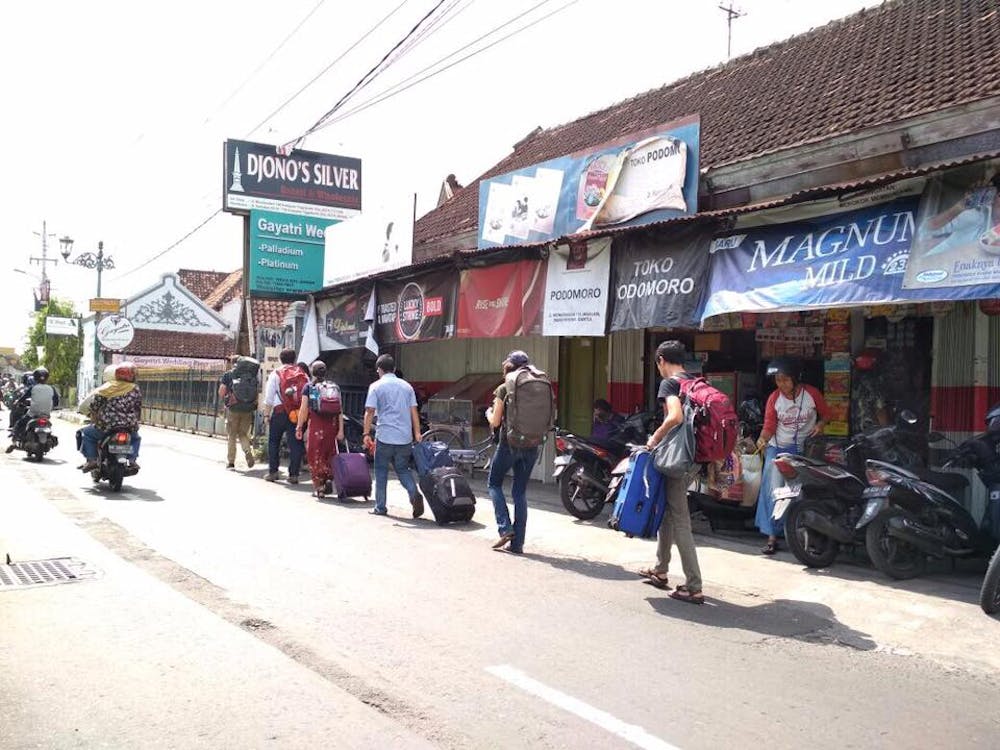Last November, students made public allegations that they had faced discriminatory experiences at the hands of locals during their time on the University’s Novogratz Bridge Year Program. Facing these allegations, Director John Luria brought on the social justice education firm Rested Root Corp to consult on remedial next steps.
On Jan. 21, members of the Bridge Year Program community received an email outlining the program’s “action plan,” which outlined a variety of policy proposals to address the concerns of minority students. The proposals focus heavily on providing students with more identity-specific information on their host nation prior to their departure. This includes the proposed creation of “country-specific guides for participants with targeted identities,” a summer virtual orientation program with an emphasis on “healthy communication across differences,” and identity-based affinity circles for students.
Once students arrive, the “action plan” proposes that conversations around identity continue through an “on-site training series.” Additionally, the process for reporting discrimination will be further emphasized in orientation, and staff on the ground will be given more guidance as it relates to “supporting students of targeted identities.”
The program has also expressed interest in reviewing their financial aid policies and program expense estimates to avoid confusion around the out-of-pocket resources that students will require.
In a statement to The Daily Princetonian, Deputy University Spokesperson Michael Hotchkiss reemphasized the program's dedication to this initial set of policy goals.
“Enhancing our equity and inclusion efforts is a core objective of the Novogratz Bridge Year Program, and we will implement as many of the action items as possible, as soon as possible,” Hotchkiss wrote.
“The action plan was informed by conversations with program alumni and the consultancy work of Rested Root Corp, an organization that provides racial and social justice education and consulting,” he added.
In a time of general uncertainty and as worldwide COVID-19 cases summit the 100 million mark, Hotchkiss provided some clarification around the timeline of policy implementation and some more information around the status of Bridge Year's 2021–22 program.

“We are currently finalizing plans for a modified Novogratz Bridge Year Program for 2021–22, while keeping an eye on the ongoing challenges presented by the COVID-19 pandemic. We anticipate significant program modifications for the upcoming year, but we will remain focused on pursuing this action plan.”
As for policies that involve partnership with other branches of the University, such as adding resources to the Office of International Programs website and building partnerships with affinity groups on campus, Hotchkiss expressed hope that collaboration will be efficient and timely.
“One of our overarching goals is to integrate Bridge Year more organically into the Princeton University student support ecosystem. This will involve collaboration with colleagues across the University, and we hope to be able to move those ideas forward expeditiously as well, even for fall 2021.”
Beyond the timeline, however, skepticism has been expressed about keeping many of these conversation-based initiatives productive.

Alison Parish ’24, a 2019–20 Bridge Year Senegal alumna, spoke optimistically about a number of the reforms outlined in the program’s “action plan.” However, she expressed fear that many of these spaces for conversation around race and identity could become performative.
“I hope it is not only dialogue because sometime when we do a lot of dialogue around race and social justice and inclusion, it becomes monotonous and people drown it out. So I hope that they will find interactive and engaging ways because we want to emphasize how important it is,” she said.
Furthermore, she expressed a strong belief that any successful reforms will come from sustained engagement with Bridge Year alumni.
“My biggest thing is all about execution. I hope that they do take a lot of student and alumni input as they create these programs. We would be the best people to tell you: this would be helpful, this would not be helpful.”
Hotchkiss spoke to the role of alumni in the process, emphasizing that the “action plan” itself is based upon consultations with alumni and pointing to the fact that the program continues to invite input from community members.
“The Bridge Year Program welcomes input from our student/alumni community as we work to implement these changes,” Hotchkiss wrote.








